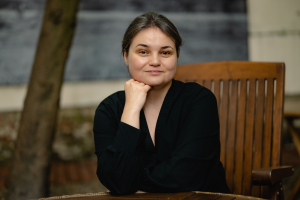This seminar explores ideas and practices of heritage in Eastern and Central Europe between 1945 and now. The course is designed as a set of five meetings, which will include short lecture introductions, seminar discussions, and at the end – practical workshop. Our meetings will be about discussing the texts, addressing cases you will read about or already know. Thіs the seminar will be our common effort in reading, asking questions and searching for answers. Therefore it is crucial that you will read assigned parts of selected texts and also consult texts from the recommended reading list. While reading assigned texts, please keep a short track of your ideas and formulate several questions you will address at the meeting. This will help us to have a dynamic discussion and a fruitful exchange of ideas. We will start with more general questions: What is heritage – is an object, an idea, a project, or a process? How the concept of heritage is shaped? Who is involved and how stakeholders are defined? To whom heritage belongs, what meanings it contains and what needs it reflects? Does the concept have a history? What does it mean to see heritage critically? What are relations between heritage, politics, and power? What are relations between present and past as reflected through or by heritage practices? If heritage means selection, then what is selected and what is not and why? Can we separate tangible and intangible in heritage and how such division works? Does heritage has only positive meaning and what is difficult and contested heritage?
While keeping these general questions in mind we will turn to specific places and periods in Eastern and Central Europe and ask what are heritage practices in the regions with multi-ethnic and multi-religious pasts marked by wars, genocides, and ethnic cleansing in the 20th century? What is the place of heritage in post-war societies, after destructions, targeted annihilation of people, entire societies and groups, depriving them not only of lives and personal dignity and belongings, but of community ties, objects of pride and history? How heritage is used, mobilized, approached and appropriated in post-war Eastern and Central Europe? How and why attitudes to heritage changes throughout post-war decades in socialist states and societies? Looking at the post-Communist period will question how ethnic and national definitions are reassessed and into how far the ideas of multiculturalism open new approaches and perspectives on heritage and the past or conceal difficult questions?
This course was a part of Jewish History and the Multiethnic Past of East Central Europe: Societies, Cultures, and Heritage summer school.

